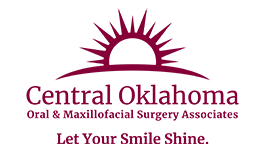15 Aug Common Procedures Offered By Our Oral Surgeons
 For certain types of dental care, your dentist may refer you to an oral surgeon. These specialists complete extensive training beyond dental school that focuses on the various structures that comprise the jaw and other related facial structures, as well as diseases and conditions that can affect those structures. Through their residencies in this field, they get ample opportunities to fine-tune their surgical skills in a variety of procedures.
For certain types of dental care, your dentist may refer you to an oral surgeon. These specialists complete extensive training beyond dental school that focuses on the various structures that comprise the jaw and other related facial structures, as well as diseases and conditions that can affect those structures. Through their residencies in this field, they get ample opportunities to fine-tune their surgical skills in a variety of procedures.
You may need to see an oral surgeon for any of the following treatments, all of which are provided at our practice:
- Wisdom tooth removal: Many patients have their first experience with an oral surgeon when it is time to have their wisdom teeth removed. When impacted, the wisdom teeth must be removed surgically because surrounding bone may need to be removed before the surgeon can access the wisdom teeth.
- Tooth extraction: Some other impacted teeth may also need to be extracted surgically, and our surgeons can also perform simple extractions when necessary.
- Dental implants: These structurally complete tooth replacement devices are the closest thing that a patient can get to a natural tooth following tooth loss. They are inserted into the jaw in a brief surgical procedure completed in a few hours. In the several months after dental implants, the jaw will grow around the implant, which becomes a fixture in the jaw.
- All-on-4: This intervention uses just four dental implants to support an entire upper or lower denture, giving even long-term denture wearers who have suffered some bone loss an opportunity to upgrade to dental implants.
- Bone grafting: Patients may need a bone graft in order to be more suitable candidates for dental implant placement or just to restore lost or absent bone to provide support to the various facial structures.
- Oral pathology: Our surgeons are well-suited to address any oral pathology issues that may arise, such as the need for a surgical biopsy. Furthermore, with their expertise in various oral diseases, they can review the pathology results and recommend appropriate treatments.
When performing the surgical procedures described above, our providers aim to maximize patient comfort with a combination of effective local anesthesia and, in some cases, sedation. Your surgeon will discuss this aspect of treatment with you during the treatment planning process and give you pre- and post-operative instructions to reduce your chances of complications after the procedure.
If your dentist has recommended a surgical procedure, please call our office to ask any questions that you may have. We want you to be fully informed about your procedure and are happy to discuss any of your concerns.
